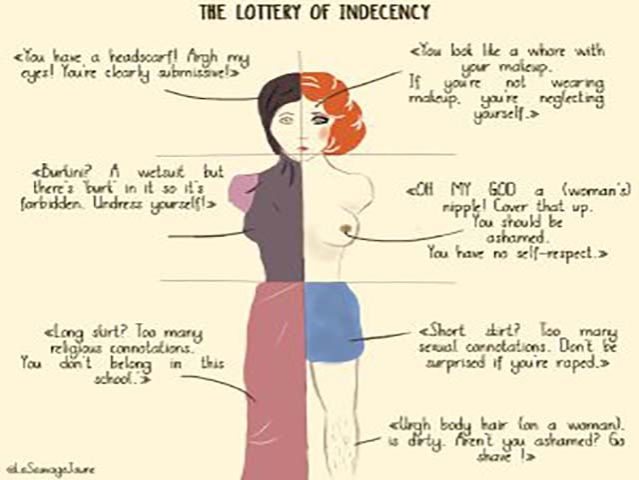The scandal of women’s bodies in secular Europe
| Date: | 25 August 2016 |
| Author: | Religion Factor |
On Tuesday this week, images of a woman on a beach in Nice being forced by armed police to remove portions of her swimwear began circulating on the internet. The so-called ‘burkini ban’ has sparked outrage and controversy, not least because it is yet another variation of an age-old problem – the control over women’s bodies in public. In today’s post, Kim Knibbe vents her frustrations and reflects on the complex array of factors that contribute to women’s bodies continuing to be objects for the exercise of power.
The secular dead body: feeling awkward about organ donorship
| Date: | 17 July 2016 |
| Author: | Religion Factor |
Organ donorship is a sensitive and at times controversial topic in numerous political contexts. In today’s post, Ton Groeneweg picks up recent failed efforts to introduce Active Donor Registration in The Netherlands to explore the relationship between these debates and evolving dynamics around religion and secularism.
Religious identity and the Refugee Crisis
| Date: | 20 June 2016 |
| Author: | Religion Factor |
Today, 20 June, is World Refugee Day. The UNHCR released its annual Global Trends Report. For the first time in the organisation’s history, global displacement has crossed the 60 million threshold, with a total of 65.3 million people displaced in 2015. That’s 24 people every minute, or 1 in every 113 people.
The Problem is Religion – but not in the way we think
| Date: | 23 March 2016 |
| Author: | Religion Factor |
The terror attacks in Brussels on Tuesday have once again raised questions about the relationship between religion and violence. In today’s post, Erin Wilsonreflects on these issues, exploring key arguments made by Prof William Cavanaugh during his recent lecture in Groningen and book The Myth of Religious Violence.
West, East, and Bureaucratic Torture
| Date: | 18 February 2016 |
| Author: | Religion Factor |
Next Tuesday 23.2.2016, at 11:00-13:00 Prof. Smadar Lavie will give a lecture in Groningen as part of a tour promoting her book “Wrapped in the Flag of Israel” – Mizrahi Single Mothers and Bureaucratic Torture. The lecture will take place in the Zittingszaal, Faculty of Theology and Religious Studies, Oude Boteringestraat 38, Groningen. In today’s post, Ronit Nikolsky provides a brief overview of the content of Prof. Lavie’s book and the questions and issues she will explore further during this lecture.
Inviting our future: liberal de-culturalization and the Paris attacks – Part two
| Date: | 16 February 2016 |
| Author: | Religion Factor |
In today’s post Ton Groeneweg continues his analysis of liberal de-culturalization as a deeper trend exposed by the responses to the attacks in Paris. In this second part of his blog, he focuses on how this process of de-culturalization has sincere consequences for our existence in liberal societies, and how the experienced threats to our liberal existence might offer some opportunities as well.
Inviting our future: liberal de-culturalization and the Paris attacks – Part One
| Date: | 11 February 2016 |
| Author: | Religion Factor |
After a brief hiatus, today we continue our series of reflections on the broader meaning and consequences of events such as the attacks in Paris in November late last year. In today’s post, which is the first of a two-part blog, Ton Groeneweg reflects on the structures that create and sustain the image of superiority of liberal values and positions, supposedly under threat by the attacks in Paris. This image appears to be caught in a self-blinding mechanism that, in refusing to see its own specific cultural biases, threatens to further alienate and exclude those who do not conform to its implicit norms. In the second part of the blog, he will also briefly respond to the earlier contributions of Erin Wilson and Joram Tarusarira to this series.
Continuing reflections after Paris, Beirut and Iraq attacks
| Date: | 17 December 2015 |
| Author: | Joram Tarusarira |
Today’s post continues our series of reflections on the attacks in Paris, Beirut and Iraq. Joram Tarusarira responds to Erin Wilson’s call to accept ambiguities, posing a few problems and questions with this approach
Whose religion? Whose Tolerance? A Response to Jonathan Israel
| Date: | 15 December 2015 |
| Author: | Erin Wilson |
In yesterday’s post, Aukje Muller and Roos Feringa provided a summary of a public lecture delivered by Prof Jonathan Israel at the University of Groningen. CRCPD Director Erin Wilson was one of three scholars asked to give a response to Prof Israel’s talk. These remarks are published in today’s post.
Toleration in the Dutch Republic – A changing picture?
| Date: | 14 December 2015 |
| Author: | Aukje Muller, Roos Feringa |
On Wednesday 4 November 2015, Jonathan Israel gave a University Colloquium lecture in Groningen, organised by Studium Generale. In his talk, Israel focused on the still very relevant notion of tolerance in the Dutch Republic, from the early Enlightenment period onwards. In today’s post, Aukje Muller and Roos Feringa summarise and review Prof Israel’s lecture.






